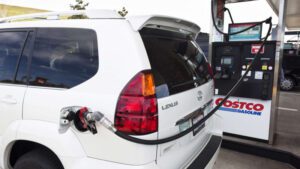Actual Cash Value Estimates Need To Be Made In Florida—How A Church Lost To Church Mutual

Florida is becoming much stricter regarding actual cash value proof. I recently warned about this in Actual Cash Value Proof Is Important Under Most Replacement Cost Policy Disputes. My assumption is that insurance defense lawyers are teaching their insurance company adjusters that some less savvy policyholders, restoration contractors, lawyers, and public adjusters are missing this basic requirement. A good example where a policyholder needlessly lost a case is from a common Hurricane Sally lawsuit involving a Presbyterian church versus Church Mutual Insurance Company.1
The lawyers for the church wrote a demand letter prior to following suit which provided in part:
The Insureds have retained RRCA Roofing & Reconstruction Contractors of America LLC to prepare an estimate of the damages related to the loss. A copy of RRCA Roofing & Reconstruction Contractors of America LLC estimate and photographs are enclosed with this letter for your review.
To sufficiently remedy the aforementioned issues, we request that Church Mutual Insurance Company promptly tender the full remaining amount owed for repairs as reflected in RRCA Roofing & Reconstruction Contractors of America LLC estimate, less the applicable deductible and any cleared prior payment.
The problem with the letter and the estimate is that they failed to include any estimates and demands for actual cash value. What the lawyer should have done was obtain an estimate that also included an amount for actual cash value, and ask the insurance company to pay the actual cash value less deductible immediately and pay the replacement cost benefits as incurred.
The federal court noted the facts as follows:
Plaintiff’s building was covered under an insurance policy issued by Defendant; that the policy covered damage caused by windstorm; that the building suffered windstorm damage from Hurricane Sally; that Plaintiff submitted a claim to Defendant for the replacement cost value (RCV) of the damage, less the applicable deductible; that Plaintiff has not repaired the damage; and that Defendant did not pay the claim. It is also undisputed that Plaintiff did not submit a claim for the actual cost value (ACV) of the covered loss and that the record contains no evidence of the ACV of the loss from which it could be inferred that the ACV of the loss exceeds the applicable deductible.
With these facts, the court ruled against the church policyholder finding:
The policy unambiguously provides that Defendant is not required to pay an RCV claim until the damaged property is repaired, and both the Florida courts and the Eleventh Circuit have construed similar policy language to mean that the insurer is not obligated to pay a replacement cost claim until the repair or replacement has been completed. See Buckley Towers Condo., Inc. v. QBE Ins. Corp., 395 Fed.Appx. 659, 662-64 (11th Cir. 2010); State Farm Fire & Casualty Co. v. Patrick, 647 So.2d 983, 984 (Fla. 3d DCA 1994) (cited with approval in Ceballo v. Citizens Prop. Ins. Corp., 967 So. 2d 811, 815 (Fla. 2007)). This Court has ruled likewise. See Metal Products Co., LLC v. Ohio Sec. Ins. Co., 2021 WL 1345525 (N.D. Fla. Apr. 12, 2021) (granting summary judgment in favor of the insurer in breach of contract suit filed by an insured seeking additional insurance proceeds because the claim was based on an RCV estimate, not an ACV estimate, and the undisputed evidence showed that the insured had not repaired the damage to the property), aff’d, 2022 WL 104618 (11th Cir. Jan. 11, 2022). The same result is warranted here.
In sum, because it is undisputed that Plaintiff has not repaired the damage to the insured building, Defendant did not breach the insurance policy by not paying the RCV claim submitted by Plaintiff. Additionally, because there is no evidence of the ACV of the covered loss, Plaintiff cannot establish that Defendant breached the policy by not paying the ACV of the loss—particularly since Plaintiff admitted in discovery that has not made an ACV claim.
The lesson is to make an actual cash value estimate, demand payment for sums above the deductible, and ask the insurance company to make replacement cost value benefits as those costs are incurred. Virtually all public adjusters make an actual cash value and replacement cost estimate at the same time. Here, the policyholder lawyers never obtained an actual cash value estimate. They admitted that they failed to even make an actual cash value claim on behalf of the church. What should have been a dispute about monies owed for the Hurricane Sally damages ended up as a technical win for Church Mutual.
Another lesson from this is that while Church Mutual advertises that it specializes in “houses of Worship Insurance,” it also has as part of its mission to “profitably grow its business.” When deciding to insure with Church Mutual, church leaders better understand that Church Mutual is going to read the literal and technical wording of its policies after a loss occurs.
Thought For The Day
For where God built a church, there the Devil would also build a chapel.
—Martin Luther
___________________________________
1 Gulf Breeze Presbyterian Church v. Church Mutual Ins. Co., 3:21-cv-00909 (N.D. Fla. Mar. 15, 2022).




